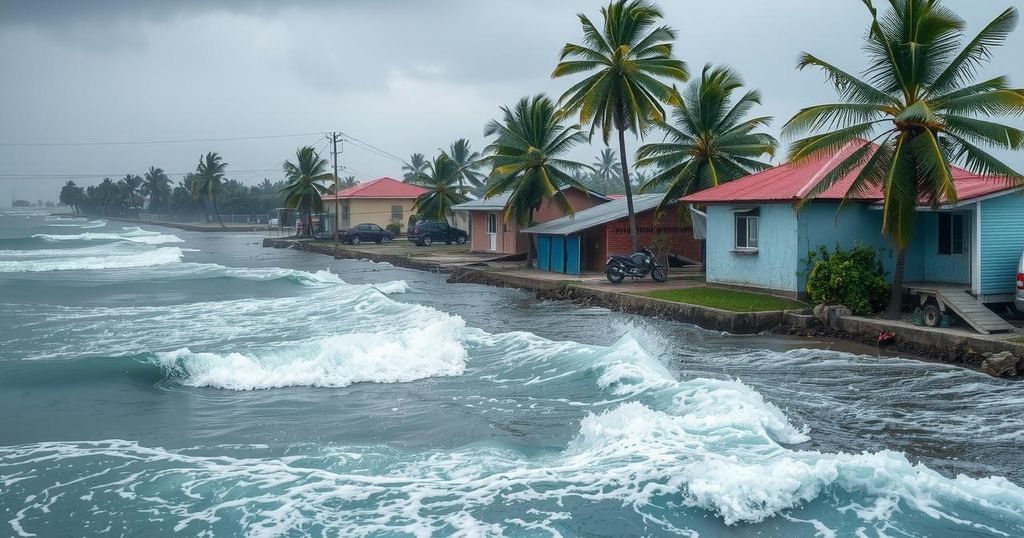Mozambique: Response to Tropical Cyclone Chido and Its Impact on Communities
Tropical Cyclone Chido made landfall on December 15, 2024, in Mecufi, putting around 2 million people at risk, with 627,000 categorized as high risk. Early warning systems were activated prior to the cyclone, reaching over 400,000 individuals. The WFP has begun delivering emergency food assistance to affected families, while assessments are planned for the hardest-hit districts.
On December 15, 2024, Tropical Cyclone Chido struck the Mecufi district in Cabo Delgado province, exacerbating an already critical situation for nearly 2 million individuals identified as vulnerable to its effects. Among these, approximately 627,000 individuals are categorized as being at high risk, while 1.4 million face moderate risk levels. Current meteorological assessments have indicated potential adverse impacts on vital infrastructure including river basins, roads, power lines, and health facilities, prompting urgent preparedness and response measures across the affected regions.
The districts most at risk include Mecufi, Chiure, Metuge, Pemba, Namuno, Montepuez, and Ancuabe in Cabo Delgado, alongside Memba, Nacaroa, and Erati in Nampula province. In light of the impending dangers, early warning systems have been activated, successfully disseminating evacuation instructions starting December 8 in Nampula and December 12 in Pemba. This initiative reached over 400,000 residents in the impacted districts, emphasizing the importance of proactive measures through the Anticipatory Action Plan.
The World Food Programme (WFP) has swiftly responded by providing emergency food assistance to around 500 families displaced by the cyclone, who are currently residing in temporary accommodation centers in Pemba. Simultaneous efforts are underway in Nampula, specifically in Mogincual, where food support has also been facilitated at temporary centers under the activation of the Anticipatory Action Plan in collaboration with the National Institute for Disaster Management (INGD). Further assessments across Mecufi and Chiure districts are scheduled to comprehensively evaluate the ongoing impacts of Cyclone Chido.
The situation surrounding Tropical Cyclone Chido unfolds within the context of Mozambique’s vulnerability to climatic disasters, having experienced numerous cyclones and extreme weather events that strain resource availability and hamper recovery efforts. The affected regions in Cabo Delgado and Nampula provinces are characterized by significant socioeconomic challenges, including inadequate infrastructure and limited access to essential services, thus exacerbating the impacts of such natural disasters. The implementation of an Anticipatory Action Plan has become critical in these scenarios, aiming to mitigate risks and enhance preparedness before disasters strike, allowing for immediate and effective response actions.
In summary, Tropical Cyclone Chido has posed a formidable threat to approximately 2 million individuals in northern Mozambique, emphasizing the urgent need for response efforts in the face of significant infrastructure risks. The proactive measures taken, including early warning systems and emergency food distribution, signify a vital approach to managing the aftermath of the cyclone. Continued assessments and support will be essential to address the immediate needs and long-term recovery of affected communities.
Original Source: reliefweb.int




Post Comment